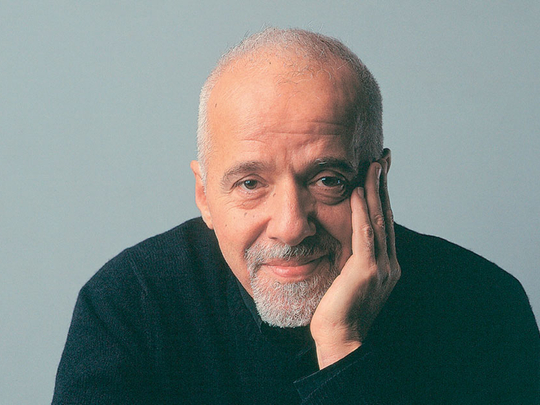
A new book by Paulo Coelho is always something to look forward to. His latest — and 20th book overall — is a “fictional” autobiography called Hippie. It’s fast-paced, but he’d prefer people don’t treat it “like a thriller” and rush through it.
In an interview by email, the Brazilian writer reveals that in writing Hippie, he followed the simple advice of Alice in Wonderland author Lewis Carroll: “Begin at the beginning [...] and go on till you come to the end: then stop.”
“I think that is what writing is,” Coelho says. “And it’s what I did when I wrote Hippie, just recounting what I had experienced.”
The book recalls young Paulo’s adventures in the wake of an affair with an older woman, including a prison stint and torture in then military-run Brazil. On his release, he decides to follow though on his oft-imagined plans to travel to Europe and onto Nepal. The book, already available in Europe and the United States, will be on sale in Argentina and other parts of the world soon.
Hippie is self-fiction. You say its events did happen and you only pass them through the filter of fiction for the reader’s benefit. How did it feel being your own character this time?
All my books are a reflection of my soul. Some more visibly so, such as The Pilgrimage or The Valkyries, and others less so. ... I wrote the book in the third person so I could see myself and look at things from a greater distance than how I perceived them at the time. Curiously, the book made me observe what is happening now, in these totally conservative societies of ours that have killed the inner freedom we had in that period. But yeah, all of the characters I create are mine. It’s just that in Hippie I’m more visible: I’m him.
Hippie is above all a road movie. A traditional road movie about travelling through different geographies. But it’s also a spiritual road movie. The protagonist leaves looking for personal growth and, for that, experiences a series of events the way traditional heroes do — the writer’s vocation, an old love, arrest and torture by paramilitaries, the trip to Amsterdam, an offer to become a drug trafficker, a new love, the Hare Krishna movement, the Sufi, the trip to Nepal — until he reaches his goal.
Did you plan the novel’s entire trajectory? Or did you treat it like a road movie and let yourself be led by the character’s experiences and desires?
Travelling was one of the keys to the hippie movement. It was where one found others. I didn’t plan anything. I laid out the story just as it was. I wrote the book because I see today’s world, where people are increasingly afraid of everything. You can’t take a step to the left or right without people attacking you. What I wrote was quite simply my experience. Experience is always the story that fits best in literature, like train coaches, this time heading towards the past.
How much did the hippie movement impact you as a writer or artist?
The hippie movement was my epiphany. When the hippies arrived with a completely different idea of the world, I totally identified with them. One must recall that it was a very repressive period, when anyone different was, in one way or another, attacked.
Do you think the hippie movement somehow changed our world for the better? Should we take up again some of the things learned in that time?
The hippie movement was not impractical, idealist or anti-capitalist. It was something that sprang out of our society. We did not want to confront society for the sake of confrontation. What we wanted was to create a society apart, and perhaps we were very naive to think so.
A society with different values regarding women, food, travelling and fashion. ... The hippies did not succeed in changing the world for the better: We can see what a disaster the world has become. Yet the hippies of that time managed to change themselves for the better, to see the world differently. And they still see it with the responsibility and solidarity that characterised the hippies.
There is a list on Spotify of songs mentioned in your book. Would you recommend reading the novel listening to those songs?
No, that doesn’t work. Because the book needs special concentration — which is why I am absolutely against the idea of adapting my books for the cinema. I do not sell my rights.
–Worldcrunch/New York Times News Service
Despite what he says, there are a handful of films based on Coelho’s books. He has also signed an agreement with a group of US publishers and production companies to create a thriller-style television series, as reported by the entertainment outlet Deadline.
The novelist recently had an awkward moment with the Spanish weekly XL Semanal. During an interview at his home in Switzerland, he was asked if one can really be a hippie while living a life of luxury. “It is the exterior, not the interior,” he replied tensely. Apparently regretting his answer, Coelho then asked for the interview “to start again.”
–Worldcrunch/New York Times News Service









